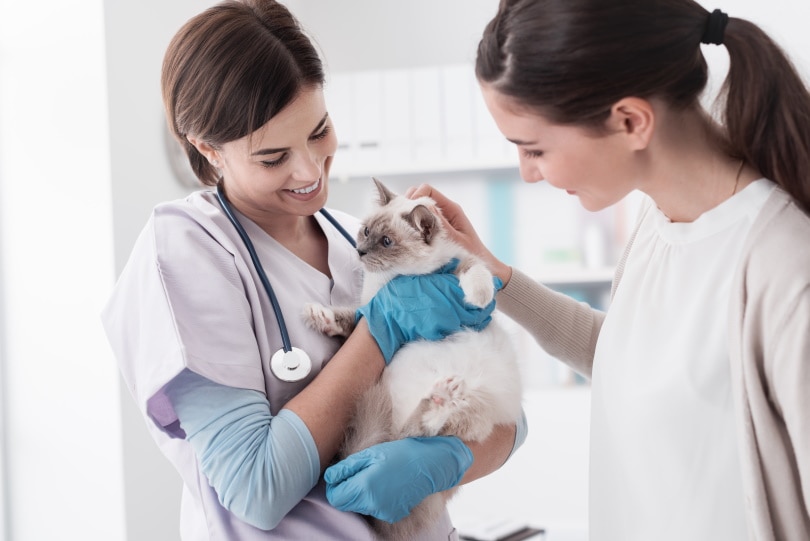
Click to Skip Ahead
It was not long ago when DNA testing was almost unheard of, even for humans. Today, we can get information about our lineage that dates back many more years previously imagined. So, it should come as no surprise that we can administer DNA tests to our cats nowadays too.
So, how do cat DNA tests work, anyway? What can we learn from administering such tests to our cats? Let’s explore the answers to these questions.
What Is a Cat DNA Test?
A cat DNA test works like ours but with more limitations. Human DNA is routinely kept in databases around the world—not so much for cats. This means more can be compared and learned from working with human DNA.
The process works by taking the DNA genomes that are collected from your cat and then comparing those genomes to all the others that are contained in the database system of the testing company that you are working with.
The only information that can be gleaned is that which is already stored within the testing company’s database. Therefore, if you are working with a company that has only put 1,000 DNA samples from cats in their database, those are the only samples that can be used against your cat’s DNA.
If the breeds that your cat is made up of aren’t in the database, you likely will not get much information from the test results.
If only a limited number of genetic health conditions are documented in the database, you may not learn about genetic problems that could be passed down to your cat and should be watched for. Luckily, many DNA companies have access to millions of DNA samples to compare your cat’s DNA to, which means you can gain a significant amount of insight into your cat’s overall makeup.

How Do Cat DNA Tests Work?
Typically, cat DNA tests are administered at home, although some veterinarians and feline healthcare professionals may administer the tests in their offices. The testing process usually involves using a swab to get a saliva sample from your cat. Then, you put the saliva sample in a plastic sealable pouch and then into a mailable package.
Send the sample to the testing facility. The saliva sample is compared to all the other samples in the testing company’s database to gain important information about your kitty. Once the results are in, you can expect them to be sent to you via snail mail, email, or both.

What Can Be Learned From a Cat DNA Test?
There are a few things that you may be able to learn by administering a DNA test to your cat. First, it can help you understand the genetic history of your cat. You may not be able to tell exactly what breed your cat is or if they would be considered a purebred feline, but you should be able to determine how many different breeds are detected in the DNA and what those breeds are. Other pieces of information that you may be able to glean include:
You cannot expect to learn specific information about your cat’s heritage like you can about yours if you were to administer a DNA test to yourself. This is because there is much more DNA information stored in databases for humans than there is for cats.
A Quick Recap
Cat DNA tests are fairly new to the market, but they can offer valuable information that lets you get to know more about your cat than just what you can learn by living with them. These tests are relatively affordable and easy to administer and typically come with some kind of guarantee that can give you peace of mind in knowing that the information that you do receive is accurate.
- See also: How Much DNA Do We Share with Cats?
Featured Image Credit: Kzenon, Shutterstock






